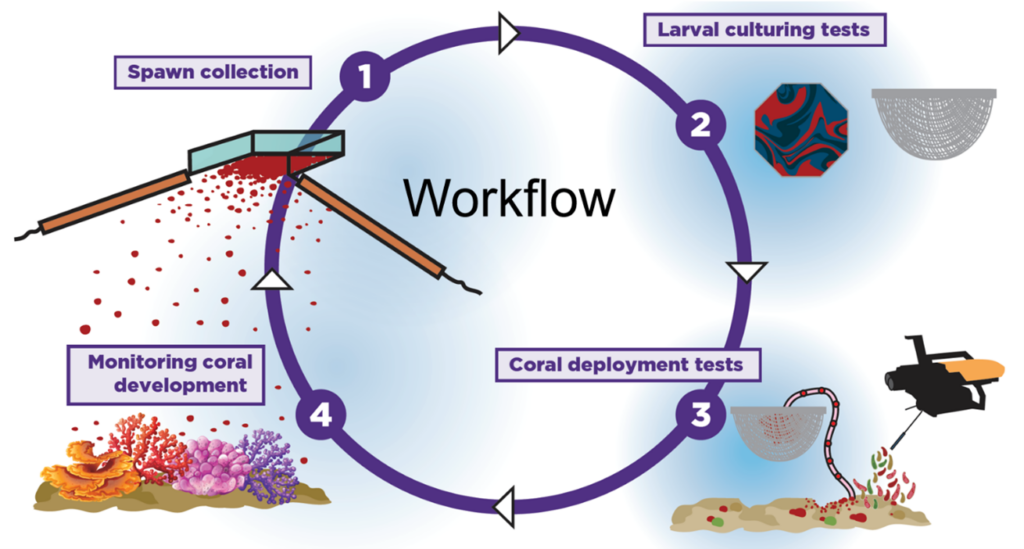Reef Restoration and Adaptation Program (RRAP) – Moving corals
Coral restoration using larval ‘seeding’ aims to speed the return of coral cover, diversity and complexity to damaged reefs by increasing the number of available coral larvae for settlement and growth into new corals, particularly where reefs have low larval supply.
Moving Corals is a reef-based R&D project focused on developing cost-effective methods to produce billions of genetically diverse coral larvae with enhanced environmental tolerance for large-scale restoration. Larvae are harvested from wild coral-spawn slicks, cultured in floating nurseries and onboard vessels, and transferred for settlement to reef areas to catalyse reef recovery.
Our team of twelve CSIRO and Southern Cross University Scientists, one Postdoctoral Research Fellow, and two PhD students, aim to quantify:
- Collection and transfer techniques that efficiently capture wild coral-spawn slicks in common reef- and weather-dependent scenarios
- Experimental treatments of larvae during mass culturing for enhanced survival and growth
- Deployment and monitoring techniques that provide scalable targeted transfer of larvae onto reefs through direct application or via settlement on devices
- Larval transfer and delivery methods of naturally more thermally tolerant larvae to combat inhibited reef recovery from climate-related stress events
Moving Corals aims to expand current smaller-scale spawn and slick capture and larval rearing methods to develop and test larger-scale routine production and transfer of hundreds of millions to billions of larvae at sea. It will develop targeted delivery and settlement over >hectare scales to receiving reefs with low coral cover.

Video: RECRUIT – Recovery of Reefs Using Industrial Techniques
For more info visit:
Key contact:

